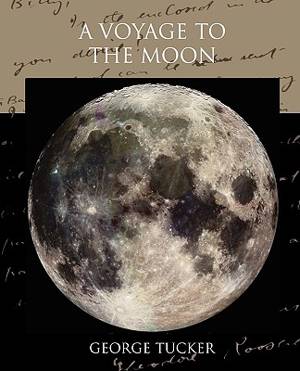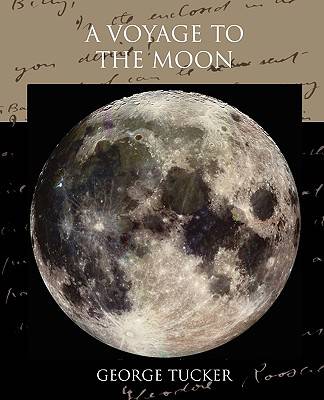
- Afhalen na 1 uur in een winkel met voorraad
- Gratis thuislevering in België vanaf € 30
- Ruim aanbod met 7 miljoen producten
- Afhalen na 1 uur in een winkel met voorraad
- Gratis thuislevering in België vanaf € 30
- Ruim aanbod met 7 miljoen producten
Zoeken
Omschrijving
George Tucker (1775-1861) wrote A Voyage to the Moon: with Some Account of the Manners and Customs, Science and Philosophy, of the People of Morosofia, and other Lunarians in 1827. A Voyage to the Moon was one of the earliest attempts at science fiction by an American author. Tucker is one of the first to use the concept of anti-gravity in this depiction of the effects of lesser gravity "I was astonished at first at this seeming increase in my muscular powers; when on passing along a street...and meeting a dog, which I thought to be mad, I proposed to run out of its way, and in leaping over a gutter, I fairly bounded across the street." The chapters on the history of Okalbia, the Happy Valley are of interest for the method of preventing overpopulation to students of American utopian communities
Specificaties
Betrokkenen
- Auteur(s):
- Uitgeverij:
Inhoud
- Aantal bladzijden:
- 148
- Taal:
- Engels
Eigenschappen
- Productcode (EAN):
- 9781438573298
- Verschijningsdatum:
- 9/03/2010
- Uitvoering:
- Paperback
- Formaat:
- Trade paperback (VS)
- Afmetingen:
- 190 mm x 235 mm
- Gewicht:
- 267 g

Alleen bij Standaard Boekhandel
+ 48 punten op je klantenkaart van Standaard Boekhandel
Beoordelingen
We publiceren alleen reviews die voldoen aan de voorwaarden voor reviews. Bekijk onze voorwaarden voor reviews.








